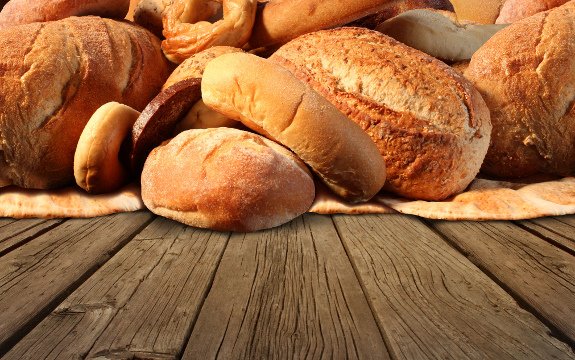The Difference Between Healthy Grains and Unhealthy Grains

 It can be overwhelmingly confusing, figuring out which foods to focus on or avoid with the glut of specialized diets promoted and proselytized today. Obviously, some thrive on these diets or they wouldn’t be so fanatical, but there are those whose health worsens with any of these diets. Truth is, there is no one diet size that fits all.
It can be overwhelmingly confusing, figuring out which foods to focus on or avoid with the glut of specialized diets promoted and proselytized today. Obviously, some thrive on these diets or they wouldn’t be so fanatical, but there are those whose health worsens with any of these diets. Truth is, there is no one diet size that fits all.
There is also an index that provides metabolic typing practitioners worldwide who can be consulted by email or phone here.
Ayurvedic practitioners are renowned for determining exactly what constitutes an appropriately healthy diet for anyone after assessing one’s physiological and psychological traits.Without the guidance of an Ayurveda practitioner’s centuries-old dietary science or any other metabolic typing system, we’re left to our own intuition, research, and trial and error.
Some Essential Dietary Cautions that are Applicable to Just About Everyone
Just as many decry dairy without looking into how raw dairy products could be beneficial, while pasteurized milk does cause problems, there are those who insist everyone stay away from grains of all types all the time without fully examining the issue.
The difference between healthy grains and unhealthy grains is ignored. They’re all lumped together. One thing is for certain, processed grains that are ubiquitous on most food store shelves and in processed foods or served in most restaurants are unhealthy for everyone.
Processed grains are synthetically bleached to create white flour. This practice forced an early 20th century head of the FDA forerunner Bureau of Chemistry, Dr. Harvey Wiley, MD, to resign in disgust at the government’s failure to enforce anti-wheat bleaching legislation he had proposed.
A byproduct of synthetic bleaching, never included as an ingredient, is alloxan, used to induce diabetes in lab rats! The European tradition requires sun to whiten flour. But if you look for it, unbleached white flour is available. Even before bleaching, Big Ag’s harvesting and storing procedures for grains are littered with toxic procedures, explained with practical solutions included here.
The wheat of decades ago has been hybridized botanically over generations to produce a less nutritious wheat that’s more pliable for high volume industrial baking efficiency. This has transformed wheat from 5% gluten at the turn of the 20th Century to over 50% gluten today.
Many with gluten sensitivity issues who suffer from celiac disease, IBS and other gastrointestinal inflammatory conditions feel they must avoid almost all grains. But many gluten free products are fraught with unhealthy additives to make them more palatable, just like fat-free dairy products are loaded with unhealthy carrageenan, aspartame, or often more sugar.
Studies have supported the notion that high glycemic diets from processed carbohydrates bring on diabetes type 2 and greatly increase risk factors for dementia, including the dreaded Alzheimer’s disease.
But one can have one’s cake and eat it too by selectively choosing breads or baked goods made with sprouted grains or fermented with sourdough seasoned for at least 8 hours and baked without bromides, which block iodine from nourishing the thyroid.
Ezekiel sprouted breads are made with sprouted grains. Sprouting virtually converts grains into vegetables. There are some bakeries that deliver these as well. Searching for sourdough with unbleached flour and non-bromated, sprouted grain products or wheat grain alternatives takes some discrimination and due diligence.
Some folks remain lactose sensitive even with raw milk products, while others overcome that sensitivity upon switching to raw milk. The same holds true for organic grain products that are treated properly. Some will have good results and others won’t.
One tip is to cut out all grains temporarily, restart with the healthier choices described here, and observe your own reactions. But everyone will benefit immediately by avoiding the processed grains that are so prevalent in today’s food supply.

Just type your credit card number here….
Hurrah! We need to know how to prepare the unfooled with foods – in this case good grains – sprouting, culturing, and learning to make sourdough – all this knowleddge is not new – just never taught to current generations
Sprouted grains, bring forth all the vitamins and minerals that are in the grain. That is a big advantage to health that was almost stopped in the 20th. century; especially after WW2.
Sprouted grains should be eaten raw…once they are cooked, for eg. in breads, they lose most of their nutritional value.